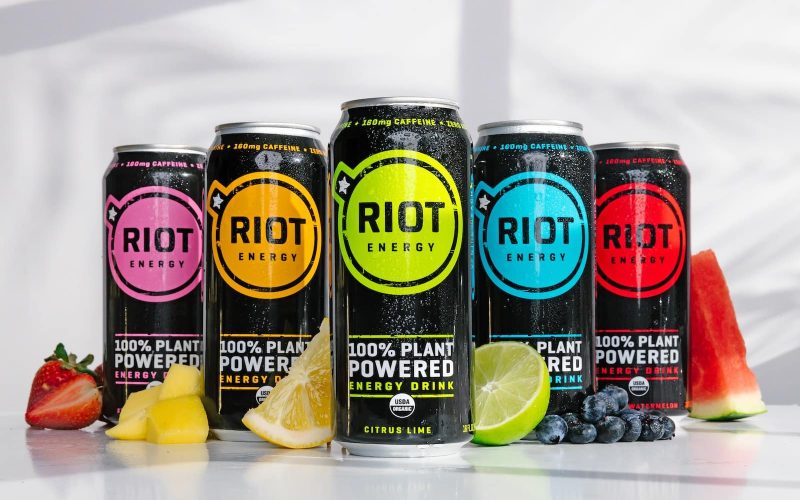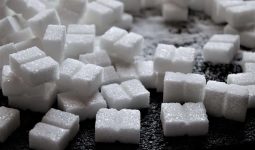Energy drink advertisements are displayed on the walls of sporting events and even on the jerseys of top athletes.
Models, music events, and video games are all sponsored by different beverage companies.
Red Bull Monster is the market’s most popular energy drink. It even has its television show and printed magazine.
The makers of these drinks claim that their elixirs will boost your immune system, improve your performance, and make you feel more energized.
Unsurprisingly, 30 to 50 percent of teens and youthful adults purchase energy drinks.
“I will be able to finish 100 push-ups in fifteen minutes by the time I’m done with this drink. Do you want to wager it?”
Of course, I wouldn’t want to wager, but do you know the side effects of energy drinks you’ve been consuming?
Are they safe to consume, particularly for teenagers and youthful adults? Trust me; you will be amazed by the time you are done with this write-up.
What are Energy Drinks?
Energy drinks typically contain caffeine in excess, sugar addition, other chemicals, and legal stimulants, which can increase alertness, attention, and energy.
These drinks are promoted as products that enhance mental alertness and physical performance.
The manufacturers of energy drinks claim their products boost energy levels, and the stimulant effects of the drinks were said to be derived from the specific concoction of ingredients.
Research has, however, indicated that the stimulant effects of energy drinks are primarily due to caffeine, which is one of the side effects of energy drinks.
Other ingredients, such as taurine, could have physiologic effects, although they are not known to boost energy levels.
The amount of vitamins and other ingredients in energy drinks frequently exceeds the daily recommendations. The side effects of these energy drinks far outweigh their benefits.
This article would like to tell you that the ingredients in these drinks vary significantly between different brands and products.
When talking about safety, which is the primary purpose of this article, one thing can be said: it is often not what it contains that is potentially harmful but how much of it is taken.
In other words, only some of the ingredients in these energy drinks are dangerous, as we shall unveil moving forward.
Let’s discuss the beneficial effects of the constituents of these energy drinks before discussing their side effects.
Side Effects of Energy Drinks
Side effects, or adverse effects, are generally undesirable, unwanted, or unexpected secondary results that occur in addition to the desired impact of something.
Below are the general side effects on the body;
1. Cardiovascular Effect
Studies show a rise in heart rate and blood pressure after consuming an energy drink.
Significant cardiac manifestations such as ventricular arrhythmias, atrial fibrillation, arterial dilatation, aneurysm formation, dissection, and rupture of large arteries have been documented following energy drink overconsumption.
Chest discomfort or tightness, tachycardia, elevated blood pressure, and heart rhythm disturbances with possible cardiac arrest have all been reported as side effects of energy drinks.
2. Neurological and Psychological Effects
Studies show that individuals often experience the effects of caffeine intoxication at doses equal to or more than 200mg.
The psychological symptoms of these energy drinks include nervousness, sleeplessness, stomach discomfort, twitching muscles, restlessness, and bouts of inexhaustibility.
Several reports have suggested energy drinks could trigger epileptic seizures and ischemic strokes.
Following a coffee intake, high cortisol levels may cause hallucinations in individuals who consume more than 300mg of caffeine daily.
Cortisol enhances stress’s physiological effects, resulting in a greater tendency for individuals to hallucinate.
Delusions, epilepsy, irritability, agitation, anxiety, and panic attacks are all the side effects of energy drinks on an individual’s psychological and neurological well-being.
3. Gastrointestinal and Metabolic Effects
Due to their high sugar content, a high intake of these drinks may increase the risk of obesity and type 2 diabetes.
This sugar content may reduce intestinal bacteria‘s activity, diversity, and gene expression, increasing the risk of obesity and metabolic syndrome.
According to research, blood glucose levels rise after energy drink consumption, leading to a decrease in insulin sensitivity.
Caffeine can also make acid reflux symptoms flare up, making heartburn worse.
4. Dental Effects
Energy drink consumption has been associated with about a 2-4 fold increase in dental erosion due to a low pH and the high sugar content of energy drinks.
Studies have shown that high-energy drink intake may lead to cervical dentin hypersensitivity by removing the smear layer of the teeth.
5. Renal Effects
The presence of caffeine in these drinks enhances diuresis, causing damage to the liver.
Energy drinks have the potential to cause dehydration, so they should be avoided during prolonged exercise in hot environments.
Caffeine promotes sodium losses in urine, affecting plasma volume and significantly altering cardiovascular performance while exercising.
6. Addictions
Addiction is the most dangerous of all the side effects of energy drinks.
Caffeine withdrawal is associated with headaches, marked fatigue, anxiety, tremors, and irritability, which explains its addiction.
There is always the feeling that “if I drink more, I will gain more energy,” which is addiction.
Side Effects of Some Constituents of Energy Drinks
Significant levels of caffeine and sugar are found in energy drinks. As discussed above, they are often combined with taurine, glucuronolactone, guarana, B vitamins, and other ingredients.
They are marketed to young people as having a performance-enhancing and stimulant effect without discussing their side effects.
1. Ginkgo Biloba
Some studies show that large amounts of ginkgo toxin in Ginkgo Biloba can cause seizures.
Possible side effects of Ginkgo include nausea, diarrhea, headaches, stomach pain, allergic reactions, etc.
Ginkgo Biloba may cause infertility, reduced blood sugar levels, excessive bleeding, allergic reactions, vision issues, constipation, etc.
2. Guarana
In high doses, guarana can cause tremors, jitteriness, agitation, confusion, hypertension, stomach cramps, headaches, anxiety, etc.
Overconsumption of guarana can lead to caffeine overdose, as it has been known to contain a high amount of caffeine.
3. Creatine
Creatine side effects of energy drinks depend on the user, but here are some effects reported by some users: kidney damage, liver damage, bloating, kidney stones, digestive issues, etc.
Muscle cramps, muscle strains and pulls, high blood pressure, and even weight gain are reported side effects of creatine.
4. Ginseng
Ginseng has been known as a home remedy for various medical conditions.
However, it can cause unpleasant side effects ranging from insomnia, nausea, and hypertension to cerebral arteritis, severe skin reactions, and even liver inflammation (cholestatic hepatitis).
5. Taurine
More information is needed on the dangerous effects of taurine. A 2019 study found that the highest level of taurine is 3 grams per day, which does not show adverse effects.
Most health experts are concerned not about the amount of taurine in energy drinks but about the other ingredients combined with taurine.
Some people have reported vomiting, nausea, liver pain, and stomach pain as side effects of taking taurine.
6. L-Theanine
Referring to an earlier saying, “It is not what these drinks contain that is potentially harmful, but how much quantity taken.”
Less common possible side effects are reported with high doses of L-Theanine, including dizziness, nausea, stomach aches, and diarrhea.
It is important to note that most of those reports concern L-theanine and caffeine or green tea extracts, which are all present in energy drinks.
7. L-Carnitine
When consumed in high doses, it has been shown that L-carnitine has side effects such as nausea, vomiting, abdominal pain, diarrhea, and seizure disorder.
8. Preservatives
If preservatives are meant to be preserved, are they intended to be among the constituents with side effects of energy drinks?
As stated earlier, it is not the potentially harmful ingredients but the quantities. For instance, sodium benzoate is used as a preservative in some drinks.
However, according to the Code of Federal Regulations, its usage should be at most 0.1% in beverages.
Sodium benzoate can have adverse effects like nausea, vomiting, and abdominal pain.
On the other hand, potassium benzoate has been studied and shown to increase the risk of cancer when consumed in large quantities over long periods.
Preservatives generally have beneficial effects but can also have adverse effects when consumed in large quantities.
9. Artificial Colors
Artificial colors added to energy drinks to improve their aesthetics have proven to have little or no nutritional benefit.
Instead, they adversely affect the body when consumed in large quantities. As stated earlier, they are artificial and petroleum-based.
Red dye 40, for instance, causes behavioral changes like irritability and depression.
It can also cause allergic reactions and hyperactivity in children and adults.
Blue No. 2 can also cause allergic reactions in some people, such as hives, asthma, skin rashes, and even tumors.
Artificial colors generally cause hyperactivity and allergic reactions when consumed in large quantities.
10. Artificial Sweeteners
Artificial sweeteners like Aspartame and Sucralose are added to energy drinks to enhance their taste.
These sweeteners have some mild side effects, although there is little evidence to back them up.
Aspartame metabolites have been studied and shown to be a primary cause of adverse effects such as headaches, mood changes, and depression.
However, there is no evidence regarding sucralose consumption’s toxicity or carcinogenic effects.
12. Sugar
Studies show that long-term exposure of the body to excesses of simple sugars is associated with the development of obesity and insulin resistance, which are also side effects of energy drinks.
The cells responsible for insulin secretion in the body are known as Pancreatic beta cells.
Over time, these cells become unable to secrete sufficient insulin to maintain appropriate blood sugar levels, leading to diabetes.
13. B-Vitamins
B vitamins are necessary for good health and well-being; there is no doubt about that. But too much of everything is dangerous.
Some popular energy drinks today contain extremely high B vitamins, especially vitamin B3 and vitamin B6.
Gastrointestinal issues, skin concerns, and excess vitamin B6 are all known to occur, as are nerve damage, blurred vision, and even liver toxicity.
14. Caffeine
Caffeine has been known to be the superstar of all ingredients in energy drinks; caffeine poses high adverse effects on the body when consumed in high doses.
According to MedlinePlus, it is not harmful for most individuals to take up to 400 mg of caffeine daily.
Caffeine overuse can cause anxiety and dehydration due to frequent urination, insomnia, dizziness, restlessness, stomach upset, abnormal heart rhythm, and headaches.
15. Glucuronolactone
Limited research has been conducted to determine whether glucuronolactone’s inclusion in energy drinks is harmful or beneficial.
Who Should Avoid Energy Drinks?
After discussing the side effects of energy drinks and the constituents that can be unhealthy when consumed too much, it is essential to note that not everyone should take energy drinks.
Even though they should be avoided as much as possible, some people still can’t do without them.
However, these drinks are not for everyone. Below are the categories of people who should not take energy drinks at all;
Pregnant women
Pregnant women should avoid energy drinks due to their side effects and constituents. Guarana intake is not advisable because caffeine crosses the placenta.
Excessive coffee intake could atypically affect your child’s growth, which could also increase the risk of abnormalities in both the mother and the child.
Heart Disease Patients
People with underlying heart conditions should consult a physician about potential energy drink complications.
As stated above, most energy drink constituents cause abnormal heart rhythms or hypertension.
It is better and safer to avoid them as much as possible. As the saying goes, to be safe is better than sorry.
Caffeine-sensitive People
Reports show that even the smallest amount of caffeine in people can result in adverse effects like agitation, sleeplessness, and a rapid heartbeat.
Sensitive to caffeine’s effects. A large caffeine intake harms their health, even for people not sensitive to caffeine.
Alcohol Consumers
The risk of alcohol-related damage can increase when caffeine is combined with alcohol.
Alcohol’s depressive effects can be offset by caffeine, making them feel more alert without realizing how impaired they are.
Children
Children and teenagers should avoid energy drinks, even though the drinks are tempting to young eyes.
If your kids sometimes take caffeinated drinks or enjoy coffee, you might wonder what harm one can of energy drink could do.
A cup of cola contains 45 milligrams, compared to approximately twice that amount in a cup of coffee.
There are different energy drinks according to the brand and size, but one can of these drinks can pack as much as 400 milligrams or 500 milligrams of caffeine.
By now, you would have known that energy drinks do not contain caffeine alone. They have other stimulants added to them and significantly threaten health.
A high amount of caffeine can make a child hyperactive or restless. Over time, they can affect the children’s developing brains and cardiovascular systems.
The side effects of energy drinks discussed in this article are just a snippet of the dangerous threats these drinks pose to health when consumed in large quantities.
When taken, these energy drinks have beneficial effects; this article does not dispute that. We advise that things done in moderation are the best.
As much as you would want to finish 100 push-ups in 15 minutes, we advise you to do it in moderation and not consume these drinks in large quantities for your safety.
Conclusion
Energy drinks may show positive, beneficial effects on exercise performance in various sports activities.
However, the side effects of energy drinks far outweigh their beneficial effects.
As discussed above, various parts of the body are negatively affected by energy drink consumption.
Considering this fact and the increasing popularity of these drinks and their constituents, caution should be exercised while consuming energy drinks because of their side effects.
So when someone says he can have up to four cans of energy drinks in a day, please refer him to this article to learn about the side effects of energy drinks!





